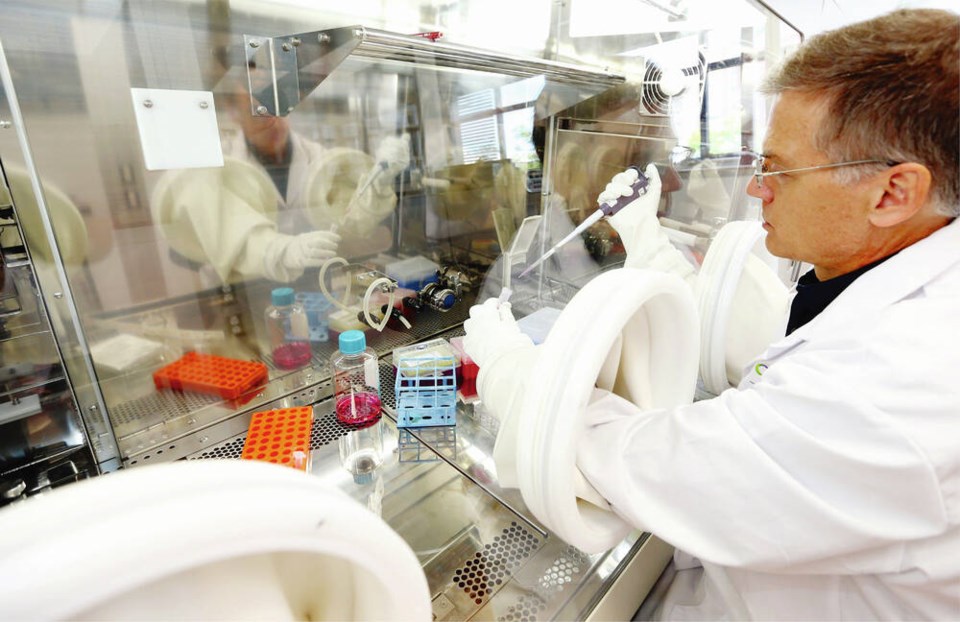We need action and answers to the alarming problems with health-care access in this province.
British Columbians are fearfully witnessing a steady deterioration in the B.C. health-care system. Demand for health-care access climbs as B.C.’s population grows.
Medical-school class size has only had an insignificant increase since 2010. Nursing training has increased over the past three decades, but not at a rate that keeps up to the demand for nursing care.
We are suffering a serious crisis in health human resources. There are significant waits to even see a GP, if you can find one to see.
Waiting times for many diagnostic tests are longer in B.C. than other provinces. The wait time to see a specialist has been ever increasing, and despite efforts, the wait time for surgery and many other procedures has dramatically increased due to the lack of health human resources. This has been highlighted by the COVID pandemic.
Let there be no mistake — COVID is not responsible for this situation. It has evolved over decades.
B.C., particularly Vancouver Island, is a popular retirement destination. B.C. is full, and still filling, with people over the age of 65. This is a demographic disaster given that the cost of living in popular B.C. areas is difficult to afford for our new generation of health-care providers. The stress on the health-care system is significant, and the stress is ever-increasing.
Our younger generations of health-care providers are not coming to B.C. and/or they are leaving the high-stress areas of health care. The lack of forward planning has led us into a very serious health human-resources crisis that is severely limiting health-care access.
Twenty-eight years ago, in 1994, I was diagnosed with breast cancer. My cancer experience paralleled Premier John Horgan’s throat cancer experience in November 2021. I was flawlessly led through the entire experience in less than two months.
Unfortunately, I once more discovered a suspicious lump in June 2021. Unlike Horgan, it took just over eight months to finally make it into the B.C. Cancer Clinic. The first words spoken to me by my newly assigned oncologist were: “Why did you wait so long to come? Your window of opportunity could be closed.”
I have chosen to go ahead with one year of chemotherapy, even though it may be too late.
Why was I so late? I was so late because my GP had difficulty fitting me in, diagnostical testing was backlogged (particularly an MRI), test results were very slow in making their way back to my GP, finding an available surgeon was next to impossible, let alone finding surgery time. Biopsies from the two ensuing surgeries were unacceptably delayed. The final biopsy report somehow didn’t make it out of the surgeon’s office to the Cancer Clinic.
Whose faults were all of these delays? The faults were simple to recognize. There are not enough doctors, surgeons, nurses, lab technicians or support staff to meet our ever-increasing demands.
Cancer care in the Cancer Clinic is excellent, but it is very fragmented when it comes to the co-ordination of surgical and diagnostic procedures that are urgently required in order to deal with the direct and deadly effects of cancer.
One needs blood work the day before each treatment, but the blood labs are full or closed. Why not have a blood test facility at the cancer clinic? The co-ordination of cancer care is severely hampered, and the severity is accelerating.
The entire B.C. health-care system is coming apart under the rapidly climbing demand for care. Supply is becoming more and more limited. The COVID pandemic has highlighted how fragile the access to health care is in the province.
Our population, particularly the most vulnerable, is suffering greatly amidst the health human-resource crisis facing this province. Action is needed, and it needs to happen as rapidly as Horgan received his cancer care.
The current system can no longer adequately protect the most vulnerable in our society.



